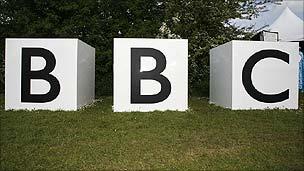New ΒιΆΉΤΌΕΔ guidelines to restrict 'derogatory' remarks
- Published

The ΒιΆΉΤΌΕΔβs Editorial Guidelines are reviewed routinely every five years
Restrictions on the use of "humiliating and derogatory remarks" are included in updated ΒιΆΉΤΌΕΔ guidelines on offence, impartiality and other matters.
The new editorial guidelines come after complaints involving British swimmer Rebecca Adlington, and presenter Claire Balding's comments on a jockey's teeth.
Rules to stop the over-promotion of new films or albums will also be imposed.
They follow criticisms of the ΒιΆΉΤΌΕΔ's coverage of U2's last album release and the sixth Harry Potter film in 2009.
The requirements for "due impartiality" across controversial subjects have been extended to include religion and science, where they used to be defined only in terms of public policy or industrial controversy.
There is also a requirement to avoid misleading audiences through programme editing or commentary, or through competitions which are not genuine.
"We recognise the need for the ΒιΆΉΤΌΕΔ to be original, surprising and sometimes edgy," said Sir Michael Lyons, chairman of the ΒιΆΉΤΌΕΔ Trust.
"At the same time it must be fair, accurate, impartial and avoid giving broad offence.
"The need to get that right lies at the heart of these editorial guidelines," he continued,
"It's always been clear that the public expects the very highest standards from the ΒιΆΉΤΌΕΔ, and the editorial guidelines are a vital tool in achieving that."
Had the new requirements aimed at protecting living people from "unduly humiliating remarks" for the purposes of entertainment been in place in 2008, it is likely that an edition of satirical game show Mock The Week would have fallen foul of them.
On the programme in question, comedian Frankie Boyle made comments about Rebecca Adlington's appearance that were subsequently ruled to be unjustified by the ΒιΆΉΤΌΕΔ Trust.
Clare Balding faced similar criticism after making reference to the teeth of jockey Liam Treadwell after he won the Grand National last year.
The ΒιΆΉΤΌΕΔ sports presenter subsequently apologised for her on-air remarks.
Another new requirement will take account of "the cumulative effect of repeated mentions of brands or products".
U2 played live on top of Broadcasting House in London as part of the ΒιΆΉΤΌΕΔ's coverage
It is understood it was partly prompted by concerns raised over the ΒιΆΉΤΌΕΔ's extensive coverage of the launch of U2 album No Line On The Horizon in February 2009.
A "Harry Potter day" on Radio 1, which coincided with the release date of the franchise's sixth instalment, was also ruled to have given the film undue prominence.
Licence fee payers were asked for their views ahead of the formulation of the updated guidelines.
The Trust received more than 1,600 responses from individuals and organisations as they were being drafted.
Alison Hastings, chairwoman of the ΒιΆΉΤΌΕΔ Trust's Editorial Standards Committee, insisted the guidelines were "not about replacing sound editorial judgement with a set of rules".
Instead, she said, "they give programme-makers certainty to enable them to take creative risks."
The new rules take effect from midnight on Monday, 18 October.
- Published24 June 2010